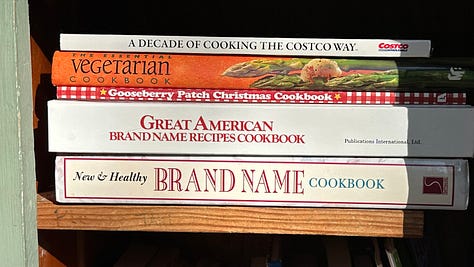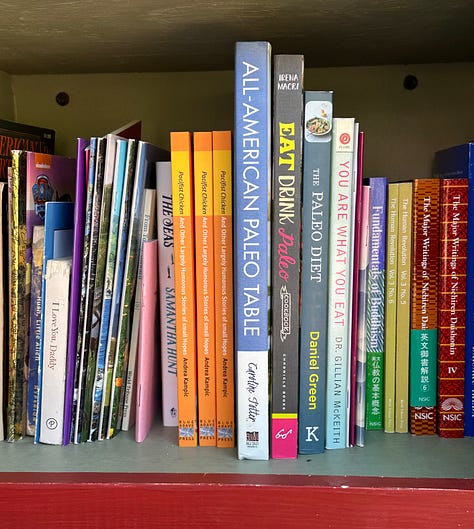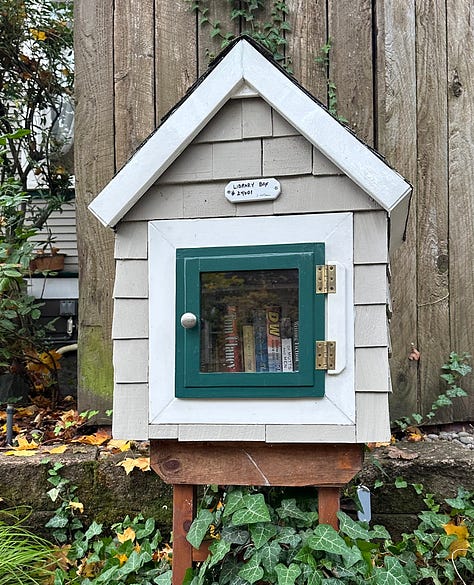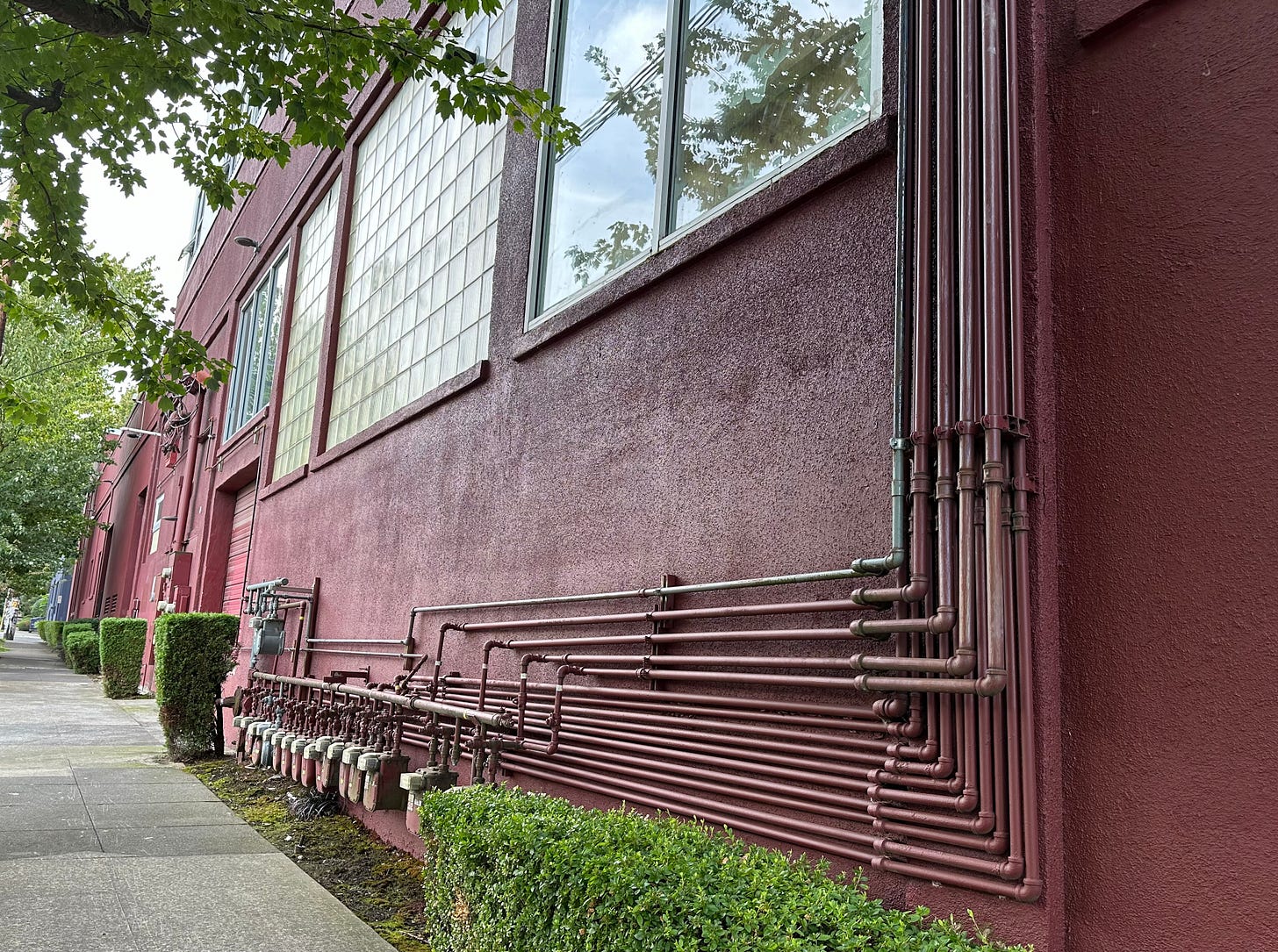Check in
Fall’s full feature
The view out the window is deep fall. Leaves everywhere, thanks to wind and rain. More leaves are filtering down, going the opposite direction from the rising birds. The wind pushes coveys of yellow elm leaves across the roofs and along the street.
The summer birds have left their trees. Even in bare trees, I can’t see their nests. Just a whisper of feathers in the leaves that remain.

All fall now
All fall now When the leaves fall the sparrows fly. The sky changes then: Clouds keep secrets from the sun And shadow the earth below. Scurrying creatures Running in fear, Rabbits and voles, Foxes and chipmunks. The hawk’s frenzied focus, Straight, lethal talons— They snap a neck, A backbone. All these flee in fall: The animals, The leaves, The birds. What is left: Leaf mold, Spent pinecones Once living matter Ground to dirt. And fall smells: Rain, wet leaves, Dying roses, Fermenting apples. Fall rains Scrub leaves into new soil. Tree roots Are grateful.
Note that I end this poem with a passive construction. Which is fitting, as the season of passivity is upon us. What is winter but a chance to lie back and accept? To hear the silence of the season after the bird song and the rushing, destructive fall winds. All will soon be buffered by snow and stillness. Fallen branches, trees, leaves, needles become the silent food of the forest as it eats itself.
More meters
I enjoyed sharing photos of gas and electric meters with you a few weeks ago. Here is one I missed. I love the structure’s sturdy dynamism.
Triad
Three words about harmony and connection in the wake of disaster.
Chord
Cord
Concord
Chord
A chord is a musical term for notes sounded together, usually three or more. It is the basis for harmony.
Coincidentally, the term I use for these occasional three-word concoctions is “triad,” which is a specific chord of three notes.
A chord is also the term for a line that connects two ends of an arc. It can be static, in a mathematical construct like a geometrical form, or it can be tense, like a bowstring.
Tension is a hallmark of musical chords. Our ear delights in hearing chords resolve from the dissonant to the tonic, releasing the tension.
Cord
We all start life attached to a cord in the uterus of our mother. Our bodies have vocal cords and a spinal cord, and muscles and tendons strung like cords along our bones.
A cord is a thin rope, strong enough to bind objects or hold laundry. Coated with plastic, cords attach appliances and electronics to power sources.
But there are also metaphorical cords, like the ones binds us to other humans—the cords of ethnicity, racial identity, social class, the workplace, neighbors, friends. The Yiddish word “mishpoche” literally means “family” but can also be used to describe any of these broader social bonds as well.
In today’s climate, we we are super-aware of cords that bind adherents to specific political outlooks. These cords do not tangle and cross; rather they keep us separate.
Tangled cords form knots. Famously, Alexander the Great took bold action when he sliced through the Gordian knot with his sword rather than trying to untie it.
Concord
More than a grape, concord is a state of living in harmony. It shares with “cord” the commonalities that bind us. And it shares with “chord” the idea of a pleasing arrangement.
I like to think of concord as a state we can live within. I’m not sure how we could reach it.
Cookbooks
I have a lot to say about cookbooks, which happen to be among of my favorite things. So you can expect to find more about cookbooks in later postings.
I found this cookbook in a Little Library.* Somebody apparently loved this book to death, reinforcing it with red tape when it threatened to fall apart.
*If you are unfamiliar with Little Libraries, they are small structures on posts that look like little houses that people put up in front of their houses. Inside a little door with a glass panel are a few shelves for people to leave books and take away others. Read more at littlefreelibrary.org.
In my generation, the big American cookbook was a staple of every household. My favorite, because it was my mother’s, was The Better Homes and Gardens New Cook Book, with its cheerful red and white tablecloth cover (although some older editions have gilded covers).
When I first set up housekeeping in an apartment in Berkeley, I bought a 1970s iteration of that book, which I still have, squirreled away in the basement where I can’t find it.
What was your book?
For many, the foundational cookbook was Joy of Cooking or The Good Housekeeping Cook Book. For my mother’s generation, in the 20s and 30s, it was the The Boston Cooking-School Cook Book by Fannie Merritt Farmer.
Other contenders: The New York Times Cook Book, The Silver Palate Cookbook, Betty Crocker’s Cookbook. One friend of mine swears by Mollie Katzen’s The Moosewood Cookbook. It’s vegetarian.
Or maybe you go all out with Larousse Gastronomique, 1,100 pages in the English translation first published in 1961. Have you ever tried cooking from a book that weighs 5.45 pounds? It’s a challenge, but the rice pudding? Magnifique!
Are cookbooks needed anymore?
Like most people today, when I need a recipe or have a cooking question, I just search the web. Before I moved to assisted living, I put all my cookbooks in storage and kept the the bookcase for other books.
Now that I’m back home, I have yet to find the cookbooks in the basement. I had already harvested many favorite recipes to keep on my tablet for reference. There are some I miss, though, and some day I will find that box in the basement.
Cook book or cookbook?
The big publishers, like Meredith (Better Homes and Gardens), Good Housekeeping, and the Boston Cooking School use two words in their titles: cook book.
The rest of us just write cookbook.
Pictures
I was astonished to find, during my years of working in the food section of The Oregonian, that some folks read cookbooks for the pictures. Really? I prefer to study the recipes and envision for myself what the dish will look like. It never occurred to me to notice that The Boston Cooking School Cook Book had hardly any illustrations. Just a few grainy photos, like this one.
But nowadays a cookbook will succeed on the basis of its beautiful pictures.
A recent cookbook from a Portland author has gorgeous food art. Sonya Sanford not only developed the recipes, she styled and photographed the food. Here’s how her website describes Braids:
The recipes in Braids are inspired by Sanford's experience growing up in a Soviet Jewish immigrant home in the Pacific Northwest, by her adventures in living and cooking in cities along the West Coast and Hawaii, and by her time running the popular restaurant Beetroot Market & Deli in Portland, Oregon.
Sonya’s cookbook may be found at Broadway Books and the Oregon Jewish Museum.
Buying cookbooks
Searching the web is all very well, but you may want to own your very own cookbooks, full of heft and fine photography. Of course, they also make great presents.
One place to find them in Portland is among the well-curated selection at Vivienne, 2724 Northeast Alberta. Owner Robin Wheelright describes Vivienne as “Portland’s independent, women-owned cookbook store.” It’s been there since 2021 and is open from noon to 6 pm Thursday through Monday.
Another found cookbook
This edition of The Better Homes and Gardens New Cook Book is from 2001. Unlike my 1970s version, it includes the new ’90s ingredients and concepts: broccoli rabe, penne, quinoa, mangoes, Buffalo wings.
I found this well-used book, with many food-stained pages, in another Little Library in the neighborhood. Included was a bank deposit receipt from 2018, which was probably used as a bookmark.
I often find items in used books. My 1919 edition of The Boston Cooking-School Cook Book includes an old letter with two recipes for fudge on fancy letterhead that reads
Knollindale Millington New Jersey I looked it up. There is a short Knollindale road in Millington, but it has several addresses. Sadly, the letter's signature is missing. I once found a 50-shekel Israeli note in a used copy of From the Mixed-Up Files of Mrs. Basil E. Frankweiler, a novel by E.L. Konigsburg. What’s the likelihood of E.L. Konigsburg living on Knollindale Road?
A popular genre
Cookbooks are among the most-seen books in Little Libraries.



I passed on the Costco cookbook, but picked up Leaving Home Cookbook and Survival Guide by Seth Braun. Hailed as “Healthy, Fast and Cheap™,” it’s also described as “A Nutritional and Lifestyle Guide for Eating Well and Staying Happy, Healthy and Above Broke with Indispensable Tips on Time, Money and Dating.”
How could I resist? Besides, Braun includes a big assortment of vegetable recipes and he’s into “superfoods” like kelp, cacao and kombucha.
Check out
More of my work
I’ve written a new creative prompt for Juke, another Substack. The subject is “stretch.” The moderator of Juke, Tonya Morton, writes in the subhead (choosing words from the essay): “We stretch phone cords, Achilles tendons, new shoes. We stretch the truth.”

Sue Cauhape, who writes the “Ring Around the Basin” Substack, took up the challenge and wrote a post about my prompt. I’m honored. Thank you, Sue!
Are you writing?
In these times, writing—any type of creation—is vital to our survival.
The prolific Maria Popova, known to thousands of followers as The Marginalian, has written a philosophical exploration of how over the course of history, humanity morphs and reforms itself. Here is an excerpt:
We call those people artists—they who never forget it is only what we can imagine that limits or liberates what is possible. “A society must assume that it is stable,” James Baldwin wrote . . . “but the artist must know, and he must let us know, that there is nothing stable under heaven.” In the instability, the possibility; in the chaos, the building blocks of a stronger structure.
Popova points to us—the writers, the artists, creators—as those who will keep the candle aflame. She titles this posting “A Lighthouse for Dark Times,” and it shines amid postmortems of the election I’ve read.
—30—
Until next week
Thank you for reading Becoming. I appreciate “likes” and I love reading and interacting with comments. I’d like to hear about your favorite cookbook.
Please consider supporting my work financially. There are no paywalls here, and it’s my intention to keep it that way. A yearly subscription is less than $1 a week.
Or just buy me a cup of coffee. I had been using a bogus PayPal link, but I think I’ve fixed it now so you can pay in $5 increments.










Ginkgo trees they are native to Asia and actually endangered in the wild they are only found in a few small isolated populations in China. These populations risk being destroyed by habitat loss and climate change. Ginkgo trees are of course not invasive when grown in other places and they are wonderful tough trees! Ginkgo trees are the only living member of their genus, family, order, class, phylum. This means they have no living relatives! This is very unusual for a tree as far as I know ginkgo trees are the only tree to be in this situation! Ginkgo trees have been around for roughly 270 million years and barely changed! Ginkgo trees were around during the dinosaurs! Ginkgo trees can live up to 2,000 years! Ginkgo trees are unfortunately commonly grown as male cultivars these male cultivars lack genetic diversity. This is bad because if a disease evolves or mutates to infect one tree it can infect all of the rest equally. This happened to the gros michel banana cultivar it nearly got wiped out. Luckily ginkgo trees are occasionally grown from seeds and seeds mean lots of genetic diversity. Seeds have lots of genetic diversity because of genetic recombination and genetic crossing and an increased chance for mutations. This is good because while a disease may be able to infect one another may have resistance and survive. Female ginkgo trees while stinky are actually a good thing because they are usually trees grown from seeds and they produce seeds which is important. Female ginkgo trees are also really good at absorbing male ginkgo pollen reducing pollen allergies! Female ginkgo trees do this because they have many sticky cones that catch pollen in spring. Ginkgo trees grown from seeds have a 50% chance to be male or female. Ginkgo tree seeds or baby ginkgo trees grown from seeds can be bought online on websites like Etsy for a few dollars. Ginkgo trees grow in zones 3-9 and like full sun but tolerate shade. Ginkgo trees will grow in any soil even clay but prefer sandier soil. Ginkgo trees like moist or dry soil and do not like constantly wet or soggy soil they do however tolerate occasional flooding. Ginkgo trees are truly amazing unique trees it’s important that we keep them alive for generations to enjoy!
Another gem of a post. I love the assortment of ideas you string together in these weekly observations.
When I was a about eight or nine, Mom bought me Betty Crocker's Cookbook for Kids. We tried the meatloaf recipe and Mom included how to bake potatoes and warm-up canned green beans with a shake or two of dried minced onions to complete a nutritious meal. That was a very important memory for me with Mom. I was never able to do something similar with my daughter, so I wrote a cookbook for her. "Beyond Ramen" included recipes and family stories. She took it to college with her and actually used it, cooking us a sumptuous dinner in her new apartment when she moved to Carson City. Unfortunately, I've lost the book Mom gave me, but Val still has "Beyond Ramen."